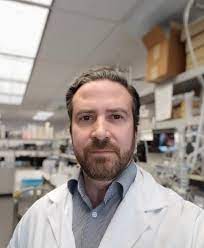In Canada today, more than 4,300 people are waiting for a transplant, and only 1.4% of those who die annually in hospitals are considered to meet the medical and legal criteria for organ donation. Waiting lists are long and the need is considerable.
Being part of the solution with cell therapy
Montreal-based Targa Biomedical, in residence since last year at adMare BioInnovations’ Montreal Innovation Centre at the Technoparc Montréal, specializes in cell therapy and regenerative medicine.
In 2009, at the CHUM, Dr. Nicolas Noiseux and Dr. Shant Der Sarkissian came up with the idea of tackling the major problem of organ shortage and the risks associated with transplantation. The two co-founders of the initiative – which officially became Targa Biomedical in 2018 – then combined forces to develop innovative treatments in the field.
Dr. Der Sarkissian’s expertise in pharmacology was thus combined with Dr. Noiseux’s many years of clinical experience, including in transplantation, to develop, after several studies, a medication. The treatment, code-named TBM-005/7, has been proven effective in preclinical models for organ preservation and repair in cardiocirculatory death.
A larger pool of organs through reconditioning

“Given the organ shortage, we focus our work on organs that are considered marginal for transplantation and are not currently selected for transplantation. These organs are treated in perfusion systems with innovative drugs developed by Targa so that they can be evaluated, prepared and repaired for transplantation. By reconditioning and optimizing organs, we will be able to increase the pool of available organs on a global scale.”
In a nutshell, Targa Biomedical can, through its treatment, “save” organs and therefore save lives. If one considers that a single donor can save up to 8 lives and get 20 people healthy again, the company’s work is certainly positioned to have a major impact.
Targa Biomedical not only reconditions and optimizes organs but also improves the process of preparation and transplantation of cells used in regenerative medicine applications. By increasing the manufacturing quality as well as the therapeutic efficacy of several cell types, including stem cells treated with their molecules, Targa Biomedical is well positioned in the fast-growing cell therapy market.
A solution for the future
Targa Biomedical has already conducted promising preclinical trials in small and large animals, including work on lung reconditioning and transplantation in pig models. The company is pursuing preclinical studies to validate its solution.
At the same time, in view of the growing worldwide demand for cell-based therapies, Targa Biomedical is developing partnerships in several countries with its drug, which has the potential to rapidly enter several markets in regenerative medicine.
“According to the numbers we have, there are over 170,000 unused organs per year in the U.S., Canada, Europe and Australia combined if you take into account the lungs, liver and heart. Working with our partners, some of these organs will be able to be processed, repaired and offered to patients.”